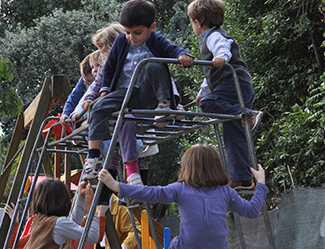| << Chapter < Page | Chapter >> Page > |
When we hold a stereotype about a person, we have expectations that he or she will fulfill that stereotype. A self-fulfilling prophecy is an expectation held by a person that alters his or her behavior in a way that tends to make it true. When we hold stereotypes about a person, we tend to treat the person according to our expectations. This treatment can influence the person to act according to our stereotypic expectations, thus confirming our stereotypic beliefs. Research by Rosenthal and Jacobson (1968) found that disadvantaged students whose teachers expected them to perform well had higher grades than disadvantaged students whose teachers expected them to do poorly.
Consider this example of cause and effect in a self-fulfilling prophecy: If an employer expects an openly gay male job applicant to be incompetent, the potential employer might treat the applicant negatively during the interview by engaging in less conversation, making little eye contact, and generally behaving coldly toward the applicant (Hebl, Foster, Mannix,&Dovidio, 2002). In turn, the job applicant will perceive that the potential employer dislikes him, and he will respond by giving shorter responses to interview questions, making less eye contact, and generally disengaging from the interview. After the interview, the employer will reflect on the applicant’s behavior, which seemed cold and distant, and the employer will conclude, based on the applicant’s poor performance during the interview, that the applicant was in fact incompetent. Thus, the employer’s stereotype—gay men are incompetent and do not make good employees—is reinforced. Do you think this job applicant is likely to be hired? Treating individuals according to stereotypic beliefs can lead to prejudice and discrimination.
Another dynamic that can reinforce stereotypes is confirmation bias. When interacting with the target of our prejudice, we tend to pay attention to information that is consistent with our stereotypic expectations and ignore information that is inconsistent with our expectations. In this process, known as confirmation bias , we seek out information that supports our stereotypes and ignore information that is inconsistent with our stereotypes (Wason&Johnson-Laird, 1972). In the job interview example, the employer may not have noticed that the job applicant was friendly and engaging, and that he provided competent responses to the interview questions in the beginning of the interview. Instead, the employer focused on the job applicant’s performance in the later part of the interview, after the applicant changed his demeanor and behavior to match the interviewer’s negative treatment.
Have you ever fallen prey to the self-fulfilling prophecy or confirmation bias, either as the source or target of such bias? How might we stop the cycle of the self-fulfilling prophecy? Social class stereotypes of individuals tend to arise when information about the individual is ambiguous. If information is unambiguous, stereotypes do not tend to arise (Baron et al., 1995).
As discussed previously in this section, we all belong to a gender, race, age, and social economic group. These groups provide a powerful source of our identity and self-esteem (Tajfel&Turner, 1979). These groups serve as our in-groups. An in-group is a group that we identify with or see ourselves as belonging to. A group that we don’t belong to, or an out-group , is a group that we view as fundamentally different from us. For example, if you are female, your gender in-group includes all females, and your gender out-group includes all males ( [link] ). People often view gender groups as being fundamentally different from each other in personality traits, characteristics, social roles, and interests. Because we often feel a strong sense of belonging and emotional connection to our in-groups, we develop in-group bias: a preference for our own group over other groups. This in-group bias can result in prejudice and discrimination because the out-group is perceived as different and is less preferred than our in-group.

Despite the group dynamics that seem only to push groups toward conflict, there are forces that promote reconciliation between groups: the expression of empathy, of acknowledgment of past suffering on both sides, and the halt of destructive behaviors.
One function of prejudice is to help us feel good about ourselves and maintain a positive self-concept. This need to feel good about ourselves extends to our in-groups: We want to feel good and protect our in-groups. We seek to resolve threats individually and at the in-group level. This often happens by blaming an out-group for the problem. Scapegoating is the act of blaming an out-group when the in-group experiences frustration or is blocked from obtaining a goal (Allport, 1954).
As diverse individuals, humans can experience conflict when interacting with people who are different from each other. Prejudice, or negative feelings and evaluations, is common when people are from a different social group (i.e., out-group). Negative attitudes toward out-groups can lead to discrimination. Prejudice and discrimination against others can be based on gender, race, ethnicity, social class, sexual orientation, or a variety of other social identities. In-group’s who feel threatened may blame the out-groups for their plight, thus using the out-group as a scapegoat for their frustration.
Give an example when you felt that someone was prejudiced against you. What do you think caused this attitude? Did this person display any discrimination behaviors and, if so, how?
Give an example when you felt prejudiced against someone else. How did you discriminate against them? Why do you think you did this?

Notification Switch
Would you like to follow the 'Psychology' conversation and receive update notifications?